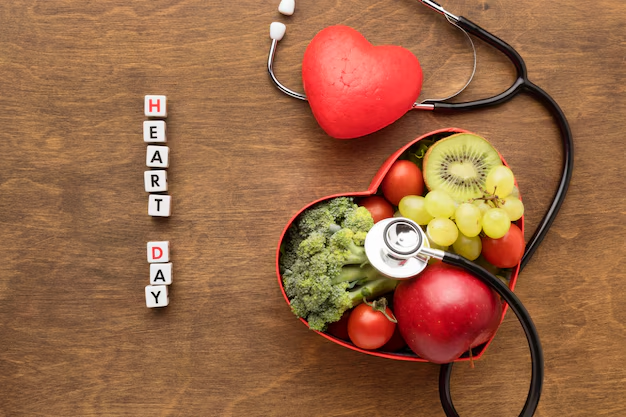Maintaining a healthy heart is crucial for overall well-being. What you eat plays a significant role in keeping your heart healthy. Fried food, known for its crispiness and rich flavors, is a popular indulgence. But is fried food bad for heart health? Studies and experts have linked fried food consumption to increased risks of cardiovascular problems. This article explores how fried food impacts the heart and offers alternatives for healthier eating.
How Does Fried Food Affect Your Heart?
Fried food can significantly affect your heart in many ways. Understanding these impacts is key to making better dietary decisions.
Effects of Fried Food on Cholesterol
Fried foods often contain trans fats and saturated fats, both of which negatively influence cholesterol levels.
- Trans Fats: These artificial fats raise “bad” LDL cholesterol while lowering “good” HDL cholesterol. Elevated LDL levels can lead to clogged arteries and restricted blood flow.
- Saturated Fats: Common in fried items, saturated fats also contribute to high cholesterol, increasing the risk of heart disease.
High cholesterol levels from fried food can lead to long-term cardiovascular damage, making it crucial to limit these fats in your diet.
Fried Food and Cardiovascular Risk
Scientific studies have consistently shown a link between consumption of fried food and heart disease.
- A large meta-analysis found that each additional serving of fried food increases the risk of heart failure by 12%.
- Regular consumption can lead to chronic inflammation, a known contributor to heart disease.
These findings emphasize the importance of moderating fried food intake to lower cardiovascular risks.
Why is Fast Food Bad For the Heart?

The way fried food affects your heart depends largely on its cooking method and ingredients.
Is Deep Frying Unhealthy?
Deep frying is one of the least healthy cooking methods. Here’s why:
- Caloric Impact: Foods absorb oil during frying, drastically increasing calorie content.
- Nutrient Loss: High heat destroys beneficial nutrients in foods, leaving behind empty calories.
Compared to baking or steaming, deep frying introduces more fat and calories, making it an unhealthy choice.
Impact of Fried Food on Arteries
Eating fried food regularly can cause plaque buildup in your arteries. This condition, known as atherosclerosis, restricts blood flow and increases the risk of heart attacks and strokes.
- How It Happens: Trans fats and saturated fats contribute to the formation of arterial plaques.
- Long-Term Effect: Blocked arteries force the heart to work harder, leading to high blood pressure and heart disease.
This is the main reason making fast food is bad for the heart.
How Does Fried Food Affect Blood Pressure?
The sodium content in fried foods is another concern. Excessive sodium can:
- Causes water retention, leading to increased blood pressure.
- Strain the blood vessels and heart, raising the risk of hypertension.
High blood pressure is a silent killer and a leading cause of heart-related deaths globally.
The Role of Ingredients in Fried Food
The ingredients used in fried food contribute significantly to its health risks.
Trans Fats in Fried Food
Trans fats are formed during the hydrogenation of oils, a process often used in frying.
- These fats are linked to increased LDL cholesterol and lower HDL cholesterol.
- They are banned in many countries but still found in some fast-food chains and packaged snacks.
Avoiding trans fats is essential for maintaining heart health.
Frying Oils and Their Health Effects
The type of oil used for frying can influence how healthy or unhealthy fried food is.
- Vegetable Oils: Commonly used but may release harmful compounds when heated at high temperatures.
- Palm Oil: Rich in saturated fats, making it less heart-friendly.
- Healthier Options: Oils like olive or avocado oil are better alternatives, as they contain heart-healthy monounsaturated fats.
Choosing the right oil can make a slight difference, but avoiding frying altogether is best for heart health.
Shifting to a Heart-Healthy Diet

Transitioning to healthier eating habits can protect your heart without sacrificing flavor.
Healthy Alternatives to Fried Food
Instead of frying, try these methods:
- Air Frying: Uses minimal oil while achieving a crispy texture.
- Baking: Retains nutrients and adds no extra fat.
- Steaming: Preserves nutrients and requires no oil.
These methods offer healthier ways to prepare your favorite dishes.
Saturated Fat and Heart Health
Saturated fats, often found in fried foods, contribute to arterial clogging and increased heart disease risk.
- Reducing saturated fat intake can improve cholesterol levels.
- Opt for foods rich in unsaturated fats, like nuts and seeds, to support heart health.
Is Grilled Food Healthier than Fried?
Grilling is a better cooking method than frying.
- Preserve Nutrients: Grilling retains more vitamins and minerals in food.
- Lower Fat Content: Excess fat drips off during grilling, reducing overall fat content.
Incorporating grilled food into your diet can help reduce your heart disease risk.
To Read: Is Fast Food Bad for Weight Loss? Healthy Alternatives
Diet and Lifestyle Considerations
Adopting a heart-healthy lifestyle involves making informed choices about your diet and daily habits. Let’s delve into how processed foods, dietary changes, and lifestyle adjustments can protect your heart from the risks associated with fried foods.
Processed Food and Heart Problems
Processed fried foods, such as chips and fast-food items, often contain high levels of trans fats, sodium, and preservatives.
- These ingredients contribute to high blood pressure, elevated cholesterol, and weight gain.
- Over time, consuming processed fried foods increases the risk of heart disease, type 2 diabetes, and obesity.
Switching to fresh, whole foods can significantly reduce these health risks.
Low-Fat Diet for Heart Health
A low-fat diet is one of the best ways to protect your heart. Reducing unhealthy fats, particularly trans and saturated fats, can improve cholesterol levels and lower cardiovascular risks.
- Focus on lean proteins, whole grains, and plenty of fruits and vegetables.
- Replace fried snacks with options like baked chips or air-popped popcorn to satisfy cravings without compromising heart health.
Maintaining a low-fat diet doesn’t mean sacrificing flavor; it’s about finding nutritious substitutions.
Signs of Heart Disease from Poor Diet
A diet high in fried and processed foods often manifests as early signs of heart problems. Watch out for:
- Chest pain or discomfort.
- Shortness of breath during physical activity.
- Persistent fatigue or irregular heartbeat.
If these symptoms appear, consult a healthcare provider immediately. Early intervention can prevent serious complications like heart attacks or strokes.
Reducing Fried Food Intake for Health
Cutting back on fried food doesn’t have to mean giving up your favorite dishes. Here’s how you can do it:
- Substitute Cooking Methods: Use baking, grilling, or air frying instead of deep frying.
- Opt for Healthier Coatings: Swap batter for lighter coatings like breadcrumbs or herbs.
- Control Portions: Enjoy smaller servings to satisfy cravings without overindulging.
These practical tips can help you reduce fried food consumption while still enjoying flavorful meals.
To Read: 100+ Best Foods That Burn Belly Fat Fast
FAQs
1. What is the most unhealthy food for your heart?
Deep-fried foods like doughnuts and fried chicken are among the unhealthiest for your heart due to their high trans fat and sodium content. These increase cholesterol and hypertension risks.
2. Is fried rice bad for your heart?
Fried rice can be unhealthy for your heart if it contains excessive oil, sodium, and fried meats. Opt for vegetable-based or low-oil versions to reduce the risk.
3. Is it OK to eat fried rice every day?
Eating fried rice daily is not recommended. The high oil and sodium content can contribute to long-term health issues like heart disease and high blood pressure.
4. Can heart patients eat fried foods?
Heart patients should avoid fried foods as much as possible. Fried foods increase cholesterol and blood pressure, worsening existing heart conditions and complicating recovery.
5. Can a weak heart become strong again?
Yes, with a healthy lifestyle, a weak heart can improve. Regular exercise, a balanced diet, and avoiding fried and processed foods can strengthen heart function over time.
Conclusion
To answer the question, is fried food bad for heart health? The evidence is clear—fried food poses significant risks to your heart. Its high content of trans fats, saturated fats, and sodium can lead to elevated cholesterol, hypertension, and arterial blockages. By limiting fried food, incorporating low-fat options, and making healthier lifestyle choices, you can protect your heart and improve your overall health. Small changes in your daily habits can make a big difference for your heart in the long run.

